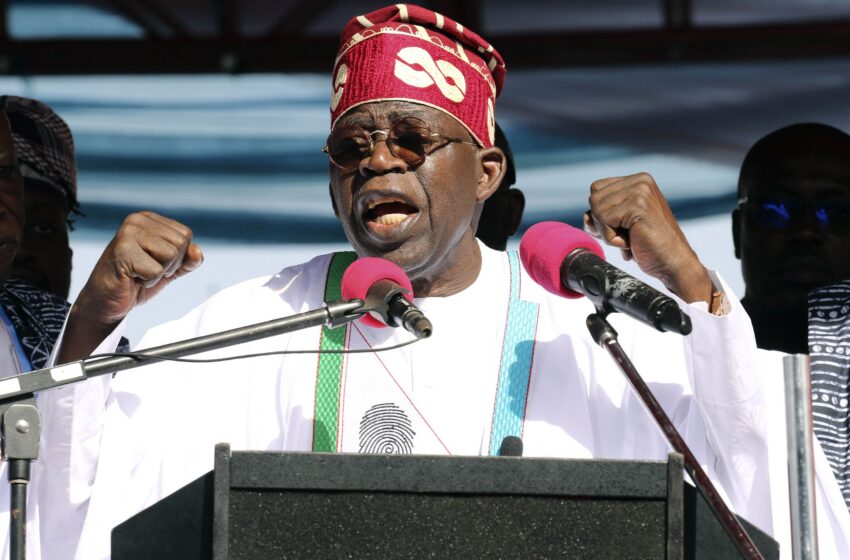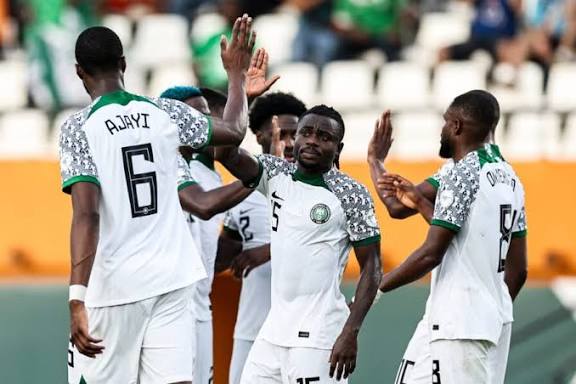EXPLAINER: All to know about interim government — and why Nigerians are talking about it

Alex Sigman: The controversial ‘schoolmate’ in Tinubu’s academic drama
By Victor Akuma
Nigeria has had 24 years of uninterrupted democracy with four successive governments of Olusegun Obasanjo, Umaru Musa Yaradua, Goodluck Ebele Jonathan and now Muhammadu Buhari. But fears that such could be disrupted have become rife in recent weeks.
On Wednesday, the Department of State Services (DSS) announced there was a ploy by some political actors to install an interim government in the country.
In a Twitter post, the agency said the planners of the insurrection have weighed various options which include to sponsor endless violent mass protests in major cities to warrant a declaration of state of emergency and to obtain frivolous court injunctions to forestall the inauguration of new executive administrations and legislative houses at the federal and state levels.
“The Department of State Services (DSS) has identified some key players in the plot for an Interim Government in Nigeria. The Service considers the plot, being pursued by these entrenched interests, as not only an aberration but a mischievous way to set aside the constitution and undermine civil rule as well as plunge the country into an avoidable crisis. The illegality is totally unacceptable in a democracy and to the peace loving Nigerians,” the statement reads.
PRESS RELEASE
DSS CONFIRMS PLOT FOR INTERIM GOVERNMENT BY MISGUIDED POLITICAL ACTORS
— Department of State Services (DSS) (@OfficialDSSNG) March 29, 2023
”This is even more so that the machination is taking place after the peaceful conduct of the elections in most parts of the country. The planners, in their many meetings, have weighed various options, which include, among others, to sponsor endless violent mass protests in major cities to warrant a declaration of State of Emergency. Another is to obtain frivolous court injunctions to forestall the inauguration of new executive administrations and legislative houses at the Federal and State levels.”
What is Interim Government — and why are Nigerians talking about it?
Interim government, also known as a provisional government or a transitional government, is an emergency governmental authority set up to manage a political transition generally in the cases of a newly formed state or following the collapse of the previous governing administration.
Provisional governments are generally appointed and usually happen either during or after civil or foreign wars.
Interim governments maintain power until a new government can be appointed by a regular political process, which is generally through an election.
They may be involved with defining the legal structure of subsequent regimes, guidelines related to human rights and political freedoms, the structure of the economy, government institutions, and international alignment.
Provisional governments differ from caretaker governments which are responsible for governing within an established parliamentary system and serve as placeholders following a motion of no confidence, or following the dissolution of the ruling coalition.
Interim government was first witnessed in Nigeria following the crisis of the third republic after General Ibrahim Babangida handed power over to Ernest Shonekan as interim head of state on 27 August 1993. The largely powerless government was dissolved when General Sani Abacha seized power on November 17, 1993.
The discussion of an interim government had since left the purview of Nigerian politics and has never been considered since return of democracy in 1999.
It is also noteworthy that interim government is not supported by the Nigerian constitution.
However, conversation around it surfaced after the presidential and guber elections held in February and March respectively. Bola Tinubu of the All Progressives Congress (APC) won the presidential election held on February 25, 2023 with a total of 8,794,726 votes.
He defeated Atiku Abubakar of the Peoples Democratic Party (PDP) and Peter Obi of the Labour Party (LP) who polled 6,984,520 and 6,101,533 votes respectively.
However, controversies have continued to trail the election. The PDP and the LP had already filed petitions challenging the outcome of the election in court, citing irregularities in the process.
For many Nigerians, the election was anything but credible and this inspired discussions around an interim government.
Datti Baba-Ahmed, the vice-presidential candidate of the Labour Party (LP), had earlier argued Tinubu did not meet the constitutional requirements to become Nigeria’s president and should therefore not be sworn in yet.
Dattti contented that Tinubu failed to fulfill the requirements stipulated in the section of the 1999 constitution (as amended) for election to the office of the president.
“Section 134 stipulates who should be declared and issued a certificate of return. It is only that candidate that has scored the highest number of votes and at least 25 percent each in at least two-thirds of the states of the federation and the FCT,” he had said.
“Now, it is very clear that Tinubu does not have 25 percent in the FCT, we denied him. We got 61 percent. Atiku does not have 25 percent in the FCT. We denied both of them.
“By clear and unambiguous provisions of the Nigerian constitution, which must not be breached, Tinubu has not satisfied the requirement to be declared President-elect. Accordingly, there is no President-elect for Nigeria now. Because the declared one violates the constitution of the Federal Republic of Nigeria and I know what I’m saying.
“Swearing in a ticket that has not met the constitutional requirement is ending democracy. That is indeed the correct interpretation. You cannot swear in people who have not met the constitutional requirement. if you do it, you have done something unlawful and unconstitutional.”
‘We Are Not Part of Any Insurrection Plans’ — LP
The Labour Party (LP) has disassociated itself from a plot to canvass an interim government.
Yunusa Tanko, its spokesperson, said the party is committed to protecting the interest of Nigerians.
“We are not part of any insurrection plans whatsoever. But what I am saying is that we would protect the interest of Nigerian people based on the provisions of the law which provides that where you are hurting, you have the right to protest and that you would do so with the defence and protection of the Nigerian security apparatus,” he said.
The Street Journal earlier reported that the DSS has identified the key players behind the plot to install an interim government.
The report said the individuals include a former head of state, six ex-governors, two serving security agents and a presidential candidate who lost at the polls.
It also said the group is backed by international collaborators and that the DSS will soon start making arrests.
‘Are you working for Nigerians or APC?’ — DSS under fire
The statement by the DSS has continued to elicit intense backlash on the social media, particularly on Twitter.
Kejay Princ, a Twitter user, wondered why the DSS kept mute throughout the violence witnessed during the elections but was quick to make public the alleged threats for an interim government.
“Can y’all just stop tweeting and do your job? Is DSS supposed to brief the general public every now and then?” hr asked.
“Was there any means of communication between DSS and the public before the elections? Or y’all just on Twitter panicking the entire population for the sake of a rigged elections? I guess y’all are working for someone in particular and not for the interest of the people.”
Can y’all just stop tweeting and do your job? It’s DSS supposed to brief the general public every now and then?
Was there any means of communication between DSS and the public before the elections? Or y’all just on Twitter panicking the entire population for the sake of a rigged…— kejay prince (@kejay_prince) March 29, 2023
Aku, another user, wrote: “You didn’t uncover plot to disenfranchise Nigerians. You didn’t uncover plots to rig the elections by INEC, You didn’t uncover plots to cause violence during elections, You didn’t uncover plots to terrorise Nigerians by terrorist. Are you working for Nigerians or APC?”
You didn’t uncover plot to disenfranchise Nigerians. You didn’t uncover plots to rig the elections by INEC, You didn’t uncover plots to cause violence during elections, You didn’t uncover plots to terrorise Nigerians by terrorist.
Are you working for Nigerians or APC?
— Aku (@aku_buo) March 29, 2023
While the DSS as a reputable Nigerian security agency must ensure an interim government does not see the light of the day in Nigeria, it is also important that the state service must be sensitive to the yearnings of the Nigerian people.
It must also ensure that the agency is independent of state control.



